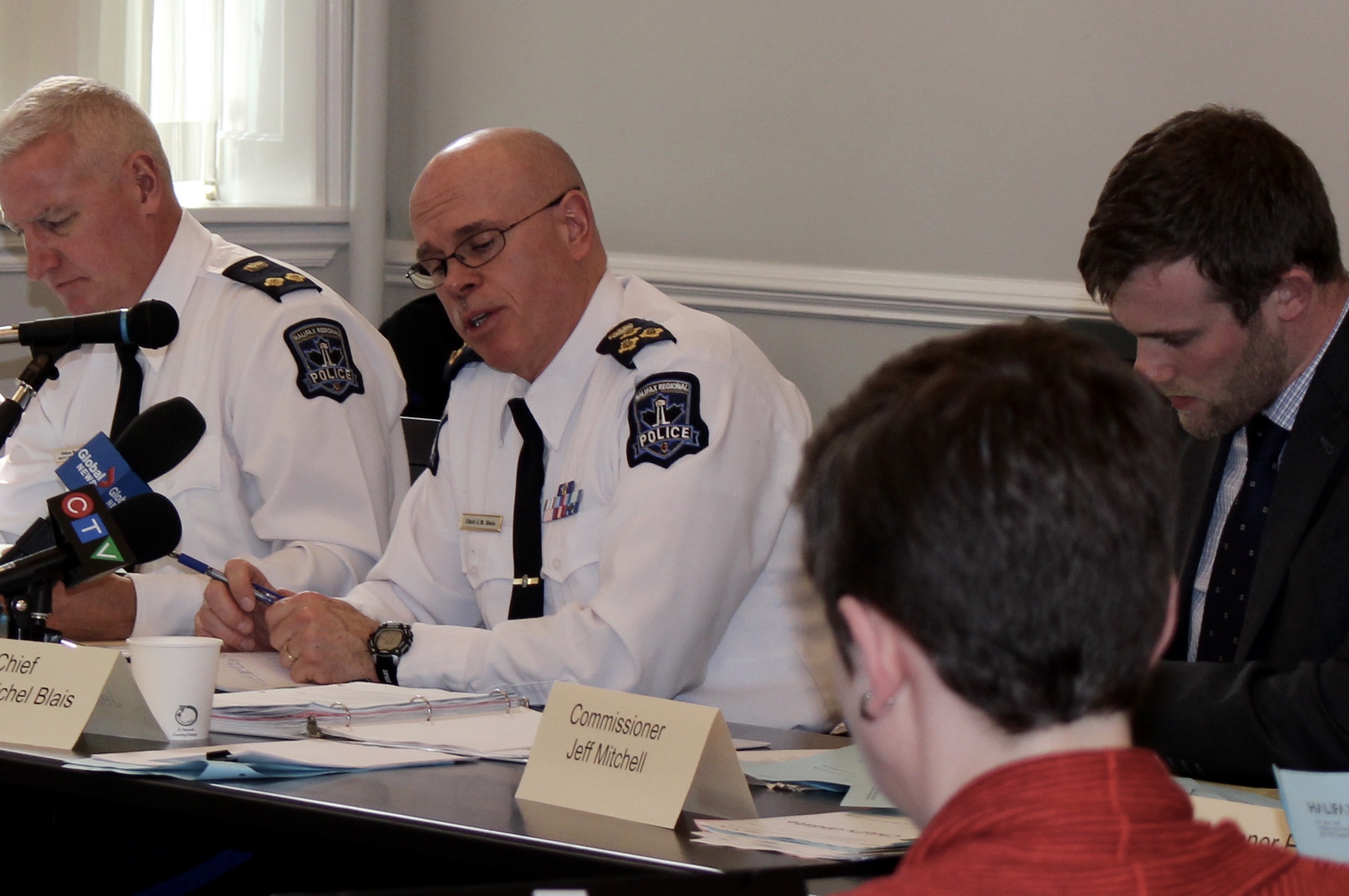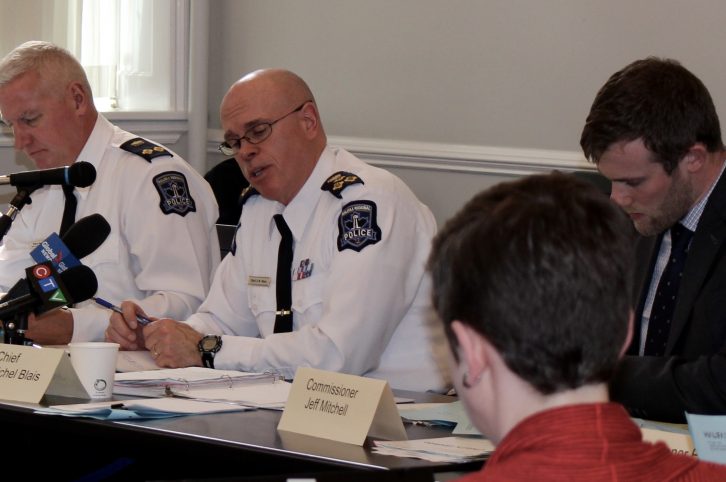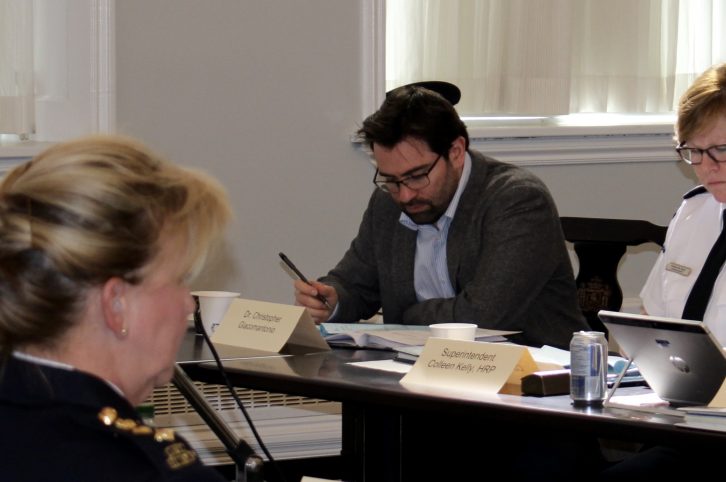Police
Police commission pushes for public opinion survey
Researcher says quarterly surveys are better

caption
Police Chief jean-Michel Blais talks at a meeting at City Hall on Monday.
caption
Police Chief Jean-Michel Blais talks at a meeting at City Hall on Monday.The Halifax Board of Police Commissioners wants to understand citizen attitudes toward police so it’s developing a survey.
The board, which serves as a conduit between police and the community, agreed Monday to move forward with the project. The goal is to monitor citizen trust and confidence in police.
“It’s good timing for this (survey),” Chris Giacomantonio, a researcher co-ordinator, told the board. Related stories
Discussion of a survey comes as police say they’re still looking for 38 evidence exhibits, after a 2015 audit showed 74 were missing or misplaced. In addition, statistics show black drivers in Halifax are three times more likely than non-black drivers to be stopped by police.
The Halifax Regional Police (HRP) and the RCMP collaborated on annual surveys between 1999 and 2013.
The issue of a new survey was first raised in April 2015, after several high-profile shootings of unarmed African-American men and boys received international attention.
HRP decided to postpone a report until the arrival of a research co-ordinator. They hired Giacomantonio in September. On Monday, he led the conversation on how best to develop the survey.

caption
Christopher Giacomantonio, who has a PhD from Oxford University, was hired as the first research co-ordinator for HRP.The survey’s design was a major point of discussion.
Commissioner Ed MacMaster said he wants to review the wording of the questions before the survey is sent out to the public.
“We live in a land of constricted language,” MacMaster said, adding that he’s concerned the language used could impact public perception of the police.
Commissioner Sylvia Parris also wanted a clarification of language.
Parris was the only person of colour at the meeting. She asked if the survey would allow individuals to identify as members of a specific race and ethnic community to show if attitudes toward police vary among different groups. Giacomantonio said that it would.
There was some debate over whether or not police had a responsibility to respond to the results.
Parris said she wants any issues brought up in the survey to result in some action from police. However, MacMaster said the survey should “come with restricted viability,” meaning results would not necessitate police reaction.
Quarterly surveys
Giacomantonio said a good question for the survey would involve rating the statement: “I believe police share the same values as I have.” A poor question would ask how satisfied residents are with police services, as those types of questions usually elicit status quo responses.
“Most cities do an annual survey,” said Giacomantonio. “The overall recommendation is to move forward on quarterly surveys.”
He noted that quarterly surveys provide more accurate data and illustrate trends more effectively than annual ones. With annual surveys, he said, if an event occurs that puts police in a position where they receive either public criticism or public praise, that event may colour the results. Conducting surveys more frequently mitigates those effects.
Regarding the survey structure, Giacomantonio said it’s best to put general questions at the beginning and issue-specific questions at the end.
Giacomantonio said he will consult with Public Safety Canada in April to seek their input on the survey.

